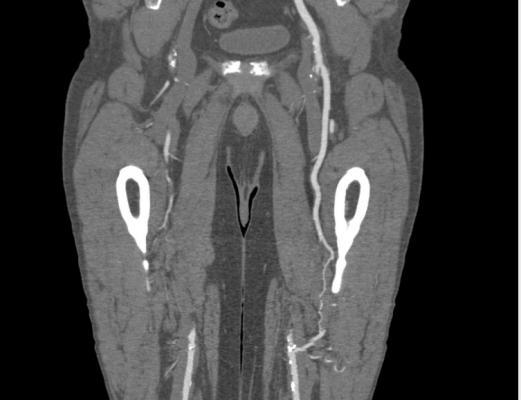
October 11, 2022 — Efemoral Medical, developer of advanced interventional bioresorbable therapies, announced that it has been awarded a Phase II Small Business Innovation Research (SBIR) grant by the National Institutes of Health. SBIR grants are intended to stimulate technological innovation and encourage small United States businesses to engage in R&D with the potential for commercialization. The objective of Phase II grants is to continue the R&D efforts started under Phase I, in which the technical merit, feasibility, commercial potential of a project, and the quality of performance of the small business awardee have been established. Funds from Efemoral's award will be applied towards conducting studies aimed at characterizing the pre-clinical safety, efficacy, and foundational mechanism of action of its unique device.
The Efemoral Vascular Scaffold System (EVSS) with FlexStep Technologyoffers a new approach for treating peripheral arterial disease (PAD) by addressing the specific anatomical challenges and complex biomechanics of patients with athero-occlusive disease in the leg. Using a combination of rigid scaffolds and inter-scaffold spaces, the patented FlexStep Technology combines flexibility with support to accommodate tortuosity and skeletal movement, while the balloon-expandable deployment system easily opens vessels and sustains healthy blood flow. The novel bioresorbable scaffold with long-term sirolimus elution aims to restore normal vessel diameter during the procedure, deliver therapeutic benefits across all lesion lengths and morphologies, prevent restenosis, and maintain patency while leaving no permanent implant behind.
"Current treatment options for patients with peripheral occlusive disease are woeful as early failures are common and the results continue to degrade over time," said Lewis B. Schwartz, MD, Co-Founder and CMO of Efemoral Medical. "The EVSS uses a unique design of alternating dissolvable scaffolds and spaces that enables the long arteries of the legs to be treated with the same, effective, balloon-expandable technology proven to be successful in other human vascular beds. It's time that we stopped implanting metal into our patient's arteries."
PAD, also known as "poor circulation" or "hardening of the arteries," is a global plague. It affects approximately 200 million people worldwide1, including an estimated 20 million in the United States.2 Left untreated, PAD can lead to severe disability and extremity amputation. The effectiveness of current interventional treatment remains limited with up to 50% of conventional endovascular procedures complicated by failure or recurrence within the first year.3
"We are honored and grateful to receive this competitive award that came as a result of a rigorous scientific assessment of the technical and commercial potential of our device from a panel of subject matter experts," said Christopher Haig, Co-Founder and CEO of Efemoral Medical. "Funding from this award will allow us to complement our ongoing clinical work with additional pre-clinical evidence as we endeavor to bring this intravascular technology to the U.S. We are looking forward to building a robust body of evidence that demonstrates the potential of our device to reliably and durably treat PAD without the need for a permanent implant."
For more information: efemoralmedical.com
References:
1 https://www.ncbi.nlm.nih.gov/pmc/articles/PMC6377796/
2 Yost, The True Prevalence of PAD and the Economics of Major Amputation, Endovascular Today, May 2021


 November 14, 2025
November 14, 2025 









